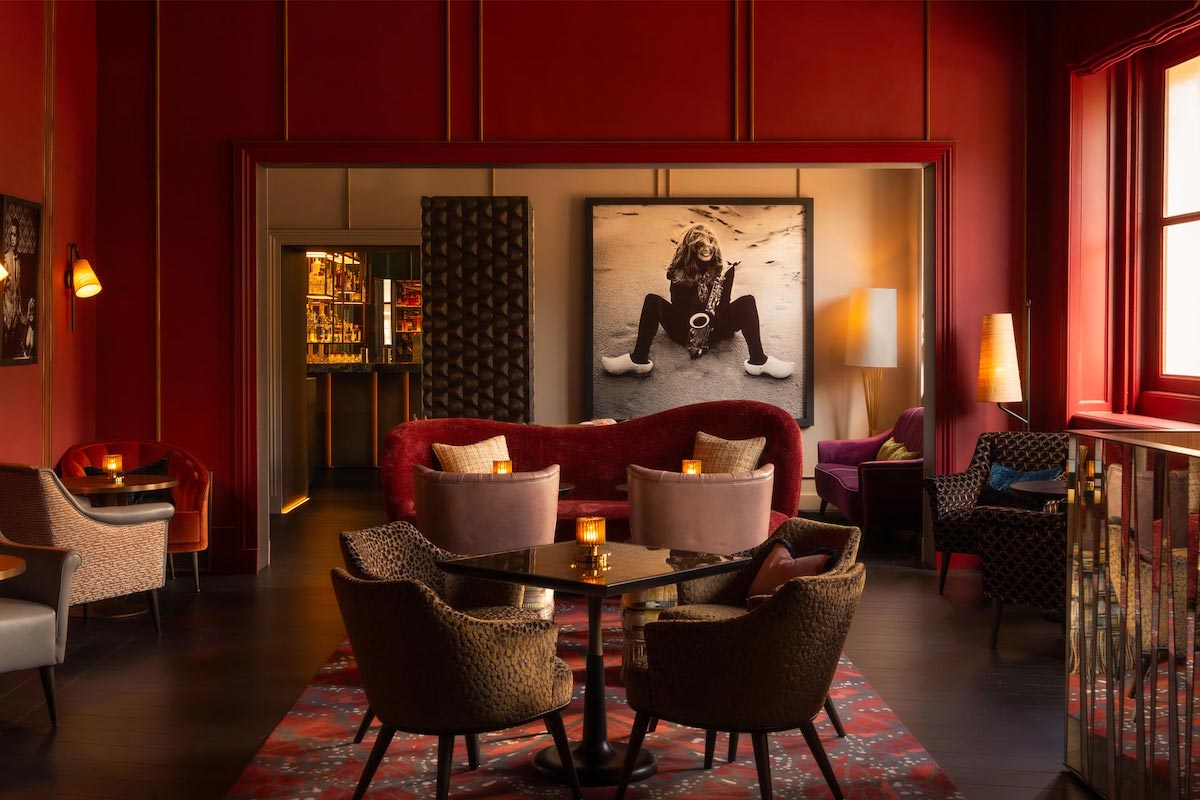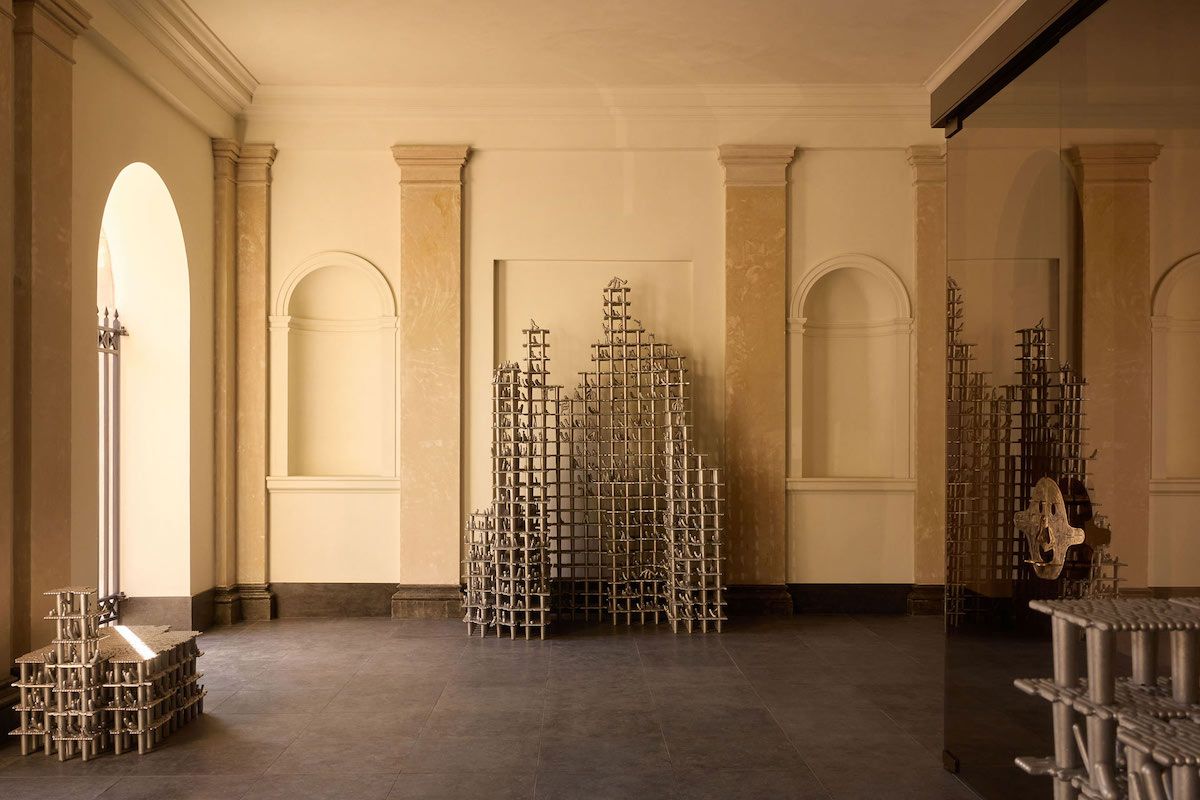On the storied banks of Amsterdam’s canals, where the rhythm of bicycles hums through cobbled streets and gabled facades whisper tales of the Golden Age, the former Palace of Justice has undergone a poetic transformation. After a decade of meticulous restoration, it emerges reborn as Rosewood Amsterdam – a sanctuary where heritage and haute design converge in an extraordinary celebration of Dutch identity and contemporary elegance.
Marking the brand’s bold debut in the Netherlands, Rosewood Amsterdam is the final new hotel development ever permitted within a monumental building in Amsterdam. This momentous project and arrival elevates the city’s hospitality scene, offering guests a refined, residential-style experience imbued with historical gravitas and modern soul.

Image credit: Rosewood Hotel Group
Constructed in 1665, the Palace of Justice has long stood as a symbol of civic strength. Today, its legacy finds new life through an artful collaboration with Studio Piet Boon, the design studio entrusted with the interiors. The studio’s approach was one of quiet reverence for the past, woven seamlessly with a bold and tactile present. The result is a study in spatial sensitivity: sweeping staircases, restrained palettes of stormy greys and Delft blues, and handcrafted details that honour Dutch design tradition without slipping into nostalgia.
The former courtrooms are now tranquil sanctuaries – 134 rooms and suites that feel more like a private residence than a hotel. Nowhere is this more apparent than in the five signature Houses, including Huis 020, where walls of glass dissolve boundaries between the historic interiors and the life unfolding on the canals outside. These spaces echo the spirit of Amsterdam itself: intimate yet open, deeply rooted yet endlessly forward-looking.
A garden as a living work of art
Just as the interiors reflect intentional design, the surrounding landscape tells a story of renewal and place. In De Tuin, visionary landscape architect Piet Oudolf (of High Line and Serpentine fame) has created a verdant sanctuary that embraces native biodiversity while redefining what an urban garden can be. It’s more than a place to stroll; it’s a place to feel.
With the wild poetry of perennials in motion, De Tuin is an ever-shifting canvas – a sensory refuge designed to echo the city’s natural rhythms. Here, nature is curated, but never constrained.

Image credit: Rosewood Hotel Group
Dining rooted in time and place
From the garden to the table, Rosewood Amsterdam champions slow luxury through its culinary offerings. At Eeuwen – a name that means ‘centuries’ in Dutch – Chef David Ordóñez curates an evolving menu that celebrates both provenance and patience. Every dish is a seasonal story, each one told with finesse and restraint. Ingredients are local, the pacing deliberate, and the interiors – designed by Sagrada – nod to Amsterdam’s historic greenhouses, fusing botanical elegance with metropolitan style.
Adjacent to the dining room sits Advocatuur. Named for the Dutch word for ‘legal practice’, the space fuses legal history with cocktail innovation. Its intimate speakeasy, The Distillery, pays homage to the Netherlands’ Jenever-making traditions, brought to life under the exacting eye of Master Distiller Alex Davies.

Image credit: Rosewood Hotel Group
Art as atmosphere
What sets Rosewood Amsterdam apart is not just its architecture or amenities, but its immersive curatorial spirit. With more than a thousand artworks spread throughout the property, the hotel pulses with creative dialogue. Think Frank Stella’s explosive colour fields, Maarten Baas’ whimsical Grandfather Clock, and pieces curated in partnership with Amsterdam’s Nxt Museum, blurring the lines between fine art and digital media.
Art here is a breathing part of the space. It builds on four themes: Innovative Media, Urban Art, Re-Masters, and Next Generation Talent – a curatorial arc that mirrors Amsterdam itself: vibrant, layered and ever-evolving.
Culture in conversation
At its core, Rosewood Amsterdam is a place of cultural connection. The Gallery hosts rotating exhibitions and creative collaborations, while the former courtroom has been reborn as The Grand Library, a refined salon for readings, gatherings, and cultural programming. Nearby, Ex Libris invites guests to lose themselves in a curated library enriched by the hotel’s neighbours—a literary tapestry of community and introspection.
This emphasis on local storytelling extends even to the hotel’s jewelry partnership with Bibi van der Velden, who serves as Rosewood’s House Jeweler. Her exquisite, nature-inspired pieces are offered to guests staying in House 020, creating an intimate, wearable link between guest and city.
And then there is the Salon Boat, a floating drawing room designed by Studio Piet Boon and crowned with a sculptural lion by Dutch street artist Frankey. As it glides through the canals, it becomes a literal vessel for discovery – of Amsterdam, of design, of self.
A new chapter in experiential hospitality
In the words of Managing Director Thomas Harlander, Rosewood Amsterdam is “an invitation to immerse yourself in the heart of this extraordinary city.” But more than that, perhaps, it is a rare convergence of architecture, artistry, sustainability and soul. A hotel, of course – but also a Gesamtkunstwerk: a total work of art.
As Amsterdam enters a new era, Rosewood’s arrival raises the bar for contemporary hospitality in a historic setting where heritage holds weight, design speaks volumes and culture flows with purpose.
> Since you’re here, why not read about the design narrative of Huvafen Fushi?
Main image credit: Rosewood Hotel Group